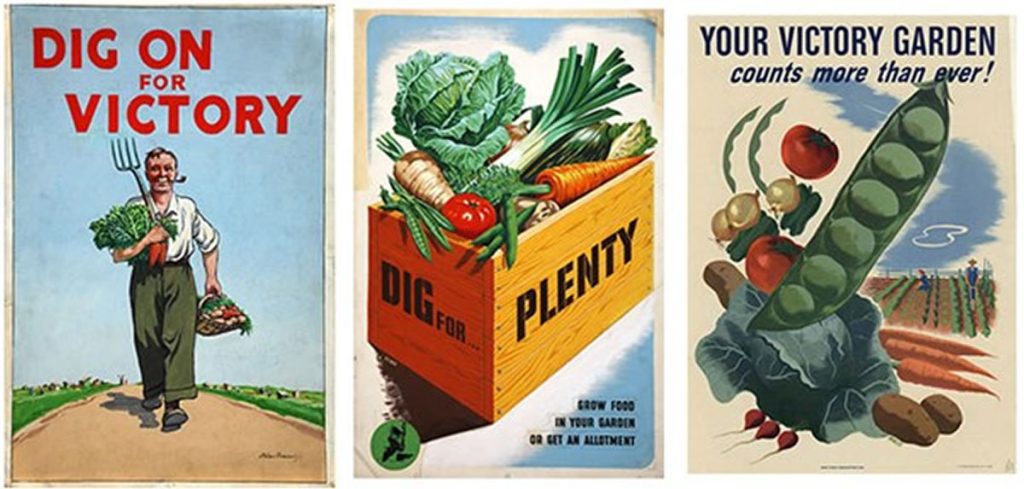
Allotments of some sort have been in existence since at least the middle ages where landowners bequeathed plots to be cultivated by poor countrymen. The enclosures of common land saw plots allotted to cottagers and labourers to compensate for the loss of common land usage. The two World Wars saw an increase in allotment cultivation as importing food became more difficult due to hostilities.
Allotments really evolved during the Second World War. The Ministry of Agriculture launched one month on from the outbreak of the war, one of the most memorable slogans of the whole conflict – “DIG FOR VICTORY”
From this point on, the whole of Britain were encouraged to transform their gardens into mini allotments. It was quite rightly believed that this would provide essential crops for families and neighbourhoods alike. Indeed, over just a few months Britain saw it’s green and pleasant land transformed, with gardens and the public green spaces dug up ready for the planting of vegetables.
By 1943, over a million tons of vegetables were being grown in gardens and allotments.
Carrots were one vegetable in plentiful supply and widely utilised as a substitute for the scarcer commodities.
To improve its taste, people were encouraged to enjoy the carrot in different ways by the introduction of such characters as ‘Doctor Carrot’ . Unusual delights such as curried carrot, carrot jam and a homemade drink called Carrolade (made up from the juices of carrots and Swede!) were suggested by the Ministry of Agriculture.
The period after the Second World War saw a decline in allotments due to increased availability of convenience foods and the association of home growing with wartime rationing. You can’t help but wonder how well people would survive in our modern world if lines to the supermarkets’ and suppliers across the globe were cut. We have become so dependent on convenience food that having whatever we fancy whenever we fancy it, is just part of our everyday life. Gone are the days of eating the fruit and vegetables that are in season. When you have an allotment and grow your own produce this is something you start to understand. The taste of a vegetable grown in season is far superior to anything you’ll ever buy. Supermarket vegetables have an entirely bland taste of their own!
The demand for allotments is there and probably always will be, hopefully even more so in the future. The Government need to think seriously about providing more of these valuable spaces, certainly replacing those that are lost forever as part of development or making provision within new developments i.e. communal gardens.